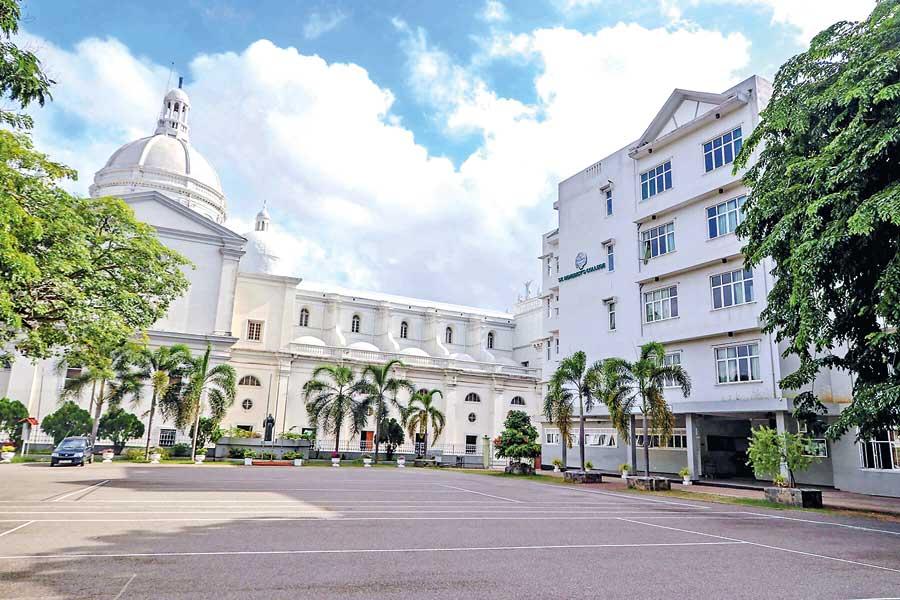Bens fostering students to face challenging future
Source:Dailymirror
St. Benedict’s College Kotahena has spelt out its purpose: to give hope and opportunity to students to lead lives with dignity and freedom
Learning while the world has changed dramatically over the years, education in Sri Lanka, as well as in most parts of the world, has remained stuck in the past. Relying on standardised testing to evaluate competencies, students are taught to memorise, repeat and regurgitate. They are trained to know the answers, with little or no attempt to help them find the answers.
It’s about memorising as much information as possible rather than learning how to think. St. Benedict’s College, an institution with a 158-year history, is gearing rapidly to change this outdated mode of educating our future generations.
Two years ago, the College crafted a strategic plan in a year-long, inclusive process with the participation of the administrators, teachers, parents, Old Benedictines and, most importantly, the students. The underlying rationale for the plan was the realisation that students entering school today will leave after the year 2035 and face a world that no one is able to predict. The plan took note of report by Price Waterhouse Coopers (PWC) entitled “Workforce of the Future: The competing forces shaping 2030” which stated: ‘talent’ no longer means the same as ten years ago; many of the roles, skills and job titles of tomorrow are unknown to us today. How can organisations prepare for a future that few of us can define? How will your talent needs change”.
“I was very impressed with the strategic plan of St Benedict’s College” said Ranjith Dediwalage, an old boy of the College and a renowned educationist in Australia.
Dediwalage has had several professional learning sessions with the teachers of the Primary, Middle- and Upper-schools of St Benedict’s explaining the fundamentals of 21st century learning. He invited the teachers to critically evaluate our current one-size fits all approach that doesn’t recognise that each child is unique and has a preferred learning style. While drawing attention to the fact that children who are currently in school belong to either Generation Z (born between 1995 and 2010) or Generation Alpha (born after 2010), he pointed out that they are ‘digital natives’, who socialise online, want personal interaction, and expect personalised experience. Being technology-savvy, they have instant access to the vast expanse of the internet and the limitless knowledge it provides. In this context, it was discussed as to what teachers can do make their classrooms more engaging and meaningful to these new generations of students.
In the strategic plan, St. Benedict’s College has spelt out its Purpose: to give hope and opportunity to students to lead lives with dignity and freedom and to serve the needs of humanity and the planet. “It is in keeping with this fundamental reason for our existence that we have launched this initiative” said Rev Brother Dr Pubudu Rajapaksa, Director of the College. “It is only by transforming our teaching methods can we empower our students with the pivotal skills and talent of the future. Only then can they have both hope and opportunity to face a world that is changing so rapidly” he added.
Both the Development Fund and the Welfare Society of St Benedict’s are geared to provide funds for this strategic objective of the school.
Albert Einstein famously said, “Education is not the learning of facts but the training of the mind to think”. It appears St Benedict’s College is heading in the right direction.








